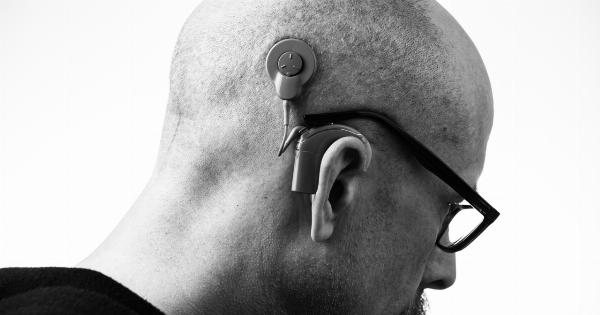Hearing technology has come a long way in recent years, with advancements in technology resulting in smaller, more discrete devices that offer superior sound quality.
These devices have the potential to significantly improve the quality of life for individuals with hearing loss. However, in order to ensure maximum benefit from hearing technology, it is essential to provide regular care and maintenance.
1. Extend the Lifespan of Hearing Technology
Regular care and maintenance can greatly extend the lifespan of hearing technology. Just like any other electronic device, hearing aids require regular cleaning and upkeep to function optimally.
By keeping them clean and replacing parts as necessary, you can ensure that your hearing aids last longer and continue to provide the assistance you need.
2. Prevent Damage and Malfunctions
When hearing aids are not properly cared for, they are more prone to damage and malfunctions. Earwax, moisture, and debris can accumulate in the device and clog important components, resulting in reduced sound quality or complete failure.
By scheduling regular maintenance appointments, you can have your hearing aids professionally cleaned and inspected, reducing the risk of damage and malfunctions.
3. Optimize Sound Quality
Regular care for hearing technology involves not only cleaning the external components but also ensuring the proper functioning of internal parts.
Over time, the tiny components within a hearing aid may degrade or become misaligned, affecting the overall sound quality. By having your hearing aids regularly serviced, you can ensure that all components are working correctly, resulting in optimal sound quality and clearer hearing.
4. Ensure Proper Fit and Comfort
Over time, the fit of hearing aids may become less secure due to changes in the shape of the ear or normal wear and tear. Ill-fitting hearing aids can cause discomfort, irritation, or even pain.
Regular care visits allow for adjustments to be made, ensuring a proper fit and maximum comfort. This can help prevent discomfort and ultimately encourage consistent use of the hearing aids.
5. Stay Technologically Updated
Hearing technology is continuously evolving, with new advancements and features being introduced regularly.
By committing to regular contact with your hearing care provider, you can stay up to date with the latest technology and upgrade your devices as needed. This ensures that you are making the most of the available technology and benefiting from the latest features and improvements.
6. Address Changing Hearing Needs
Hearing needs can change over time, and it is important to address these changes with your hearing care professional. Regular care visits provide an opportunity to assess your hearing needs and make any necessary adjustments to your hearing technology.
This may include reprogramming the devices or considering alternative options that better suit your changing needs.
7. Education and Support
Regular care appointments not only focus on the physical maintenance of your hearing technology but also provide a valuable opportunity for education and support.
Hearing care professionals can offer guidance on how to make the most of your hearing aids, troubleshoot any issues you may be experiencing, and provide tips for improving your overall hearing health. This ongoing support can greatly enhance your overall hearing experience.
8. Enhance Battery Performance
Hearing aids rely on batteries to function, and regular care can help optimize their performance. Your hearing care professional can guide you on proper battery usage and storage, as well as provide recommendations for high-quality batteries.
Additionally, they can ensure that the battery contacts within your hearing aids are clean and free from corrosion, which can improve battery lifespan and performance.
9. Preserve Manufacturer Warranty
Most hearing aids come with a manufacturer warranty that covers repairs or replacements for a specified period of time. Regular care and maintenance, as recommended by the manufacturer, are often required to maintain the warranty coverage.
By following the recommended care guidelines and scheduling regular appointments, you can preserve the warranty and avoid any out-of-pocket expenses for repairs or replacements.
10. Support Overall Well-being
Hearing loss has been linked to a range of health issues, including cognitive decline, social isolation, and even depression. By properly caring for your hearing technology, you are taking an active role in supporting your overall well-being.
By ensuring optimal hearing, you can better engage with the world around you, maintain social connections, and enjoy improved cognitive function.






























